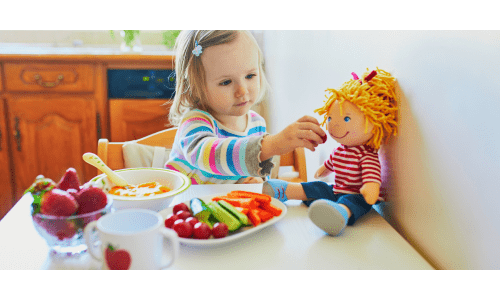High Fiber Vegetables for Toddlers
When it comes to ensuring your toddler is getting the proper nutrition, including high fiber vegetables in their diet is essential. Fiber is important for promoting healthy digestion, preventing constipation, and supporting overall gut health.
In this article, we will discuss some of the best high fiber vegetables that you can incorporate into your toddler's meals to help ensure they are getting the fiber they need.
Why Fiber is Important for Toddlers
Fiber is a type of carbohydrate that the body cannot digest. It plays a crucial role in maintaining a healthy digestive system by promoting regular bowel movements and preventing constipation. In addition, fiber helps to keep your toddler feeling full and satisfied after meals, which can help prevent overeating and promote healthy weight management.
Fiber also acts as a prebiotic, feeding the beneficial bacteria in the gut and promoting a healthy gut microbiome. This can have long-lasting effects on your toddler's overall health, including boosting their immune system and reducing the risk of certain diseases.
Incorporating high fiber vegetables into your toddler's diet from a young age can help establish healthy eating habits that can last a lifetime. By introducing a variety of fiber-rich foods early on, you can set the foundation for a balanced and nutritious diet as your toddler grows.
Best High Fiber Vegetables for Toddlers
1. **Sweet Potatoes** - Sweet potatoes are not only rich in fiber but also packed with essential vitamins and minerals such as vitamin A, vitamin C, and potassium. They can be mashed, roasted, or steamed for a delicious and nutritious addition to your toddler's meals. Additionally, sweet potatoes are a good source of antioxidants, which can help protect your toddler's cells from damage.
2. **Broccoli** - Broccoli is a nutrient-dense vegetable that is high in fiber, vitamin C, and vitamin K. It can be steamed, roasted, or added to stir-fries to provide a crunchy texture and a boost of fiber to your toddler's diet. Broccoli is also rich in antioxidants and phytonutrients that can help support your toddler's immune system.
3. **Carrots** - Carrots are a versatile vegetable that is high in fiber and beta-carotene, which is essential for eye health. They can be served raw with hummus, roasted with a drizzle of honey, or added to soups and stews for extra fiber. Carrots are also a good source of vitamin K, which plays a role in blood clotting and bone health.
4. **Spinach** - Spinach is a leafy green vegetable that is packed with fiber, iron, and vitamins A and C. It can be added to smoothies, omelets, or pasta dishes to increase the fiber content of your toddler's meals. Spinach is also rich in folate, a B vitamin that is important for cell growth and development.
5. **Green Peas** - Green peas are a good source of fiber, protein, and vitamins A and C. They can be served steamed as a side dish, added to salads, or mixed into rice dishes for a nutritious and fiber-rich meal. Green peas are also high in lutein and zeaxanthin, two antioxidants that are important for eye health.
Tips for Incorporating High Fiber Vegetables into Your Toddler's Diet
- **Offer a Variety of Vegetables** - Introduce a variety of high fiber vegetables to your toddler's diet to ensure they are getting a wide range of nutrients. Some other high fiber vegetables to consider include cauliflower, Brussels sprouts, and bell peppers.
- **Get Creative with Preparation** - Experiment with different cooking methods such as roasting, steaming, or sautéing to find ways that your toddler enjoys eating vegetables. You can also try incorporating high fiber vegetables into dishes that your toddler already loves, such as adding spinach to mac and cheese or carrots to muffins.
- **Involve Your Toddler in Meal Preparation** - Allow your toddler to help choose and prepare vegetables to encourage them to try new foods and develop healthy eating habits. This can also be a fun way to spend time together and teach your toddler about the importance of eating a balanced diet.
- **Be Patient and Persistent** - It may take time for your toddler to develop a taste for certain vegetables, so continue offering them in different ways and be patient as their preferences evolve. Remember that it can take several exposures to a new food before a child decides they like it, so don't give up if your toddler initially rejects a high fiber vegetable.
By including high fiber vegetables in your toddler's diet, you can help promote healthy digestion, prevent constipation, and support their overall health and well-being.
Experiment with different vegetables and cooking methods to find ways that your toddler enjoys eating their veggies, and remember to be patient and persistent as they develop their taste preferences.




